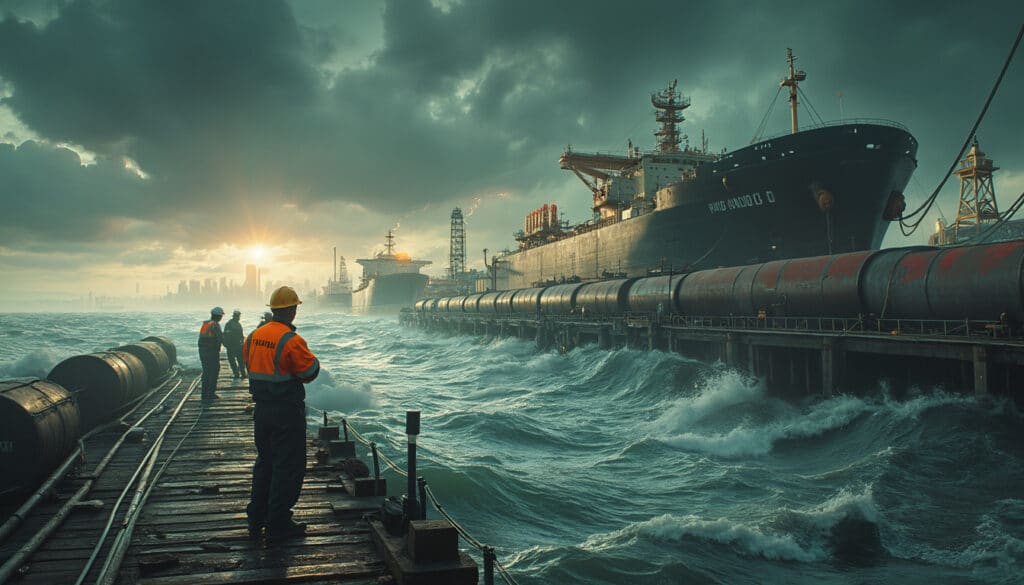A recent analysis highlights that the rise in sea levels, caused by the climate crisis, threatens to submerge many major oil ports around the world. Scientists note the irony of the situation: while the combustion of fossil fuels fuels global warming, it also jeopardizes the infrastructures essential to their commerce. Among the vulnerable ports are those in Saudi Arabia, the United States, China, and Singapore. A one-meter rise in sea level could cause significant damage. A transition to renewable energies is necessary to reduce emissions and limit these devastating environmental impacts.

the rise in sea levels: a major challenge for oil infrastructure
According to a recent analysis, the increase in sea levels, exacerbated by the climate crisis, directly threatens key infrastructures, notably crucial oil ports. Scientists emphasize that the threat is particularly ironic as it is the fossil fuels, which underpin the activities of these ports, that contribute to global warming, the root cause of this rising water. This situation reveals the urgency to shift towards renewable energies to halt the gradual climate warming.
It has been discovered that just one meter of elevation would be enough to significantly damage thirteen of the busiest ports frequented by supertankers. At the forefront are two low-lying ports in Saudi Arabia, Ras Tanura and Yanbu, which are particularly vulnerable. Operated by Aramco, these ports are vital for 98% of Saudi oil exports. This critical situation draws attention to coastal infrastructures that may require costly adaptations.
global impacts and expanded vulnerability
The vulnerability is not limited to Saudi ports alone. Other major ports, such as those in Houston and Galveston in the United States, as well as some in the United Arab Emirates, China, Singapore, and the Netherlands, are also threatened. Pearson, director of the International Cryosphere Climate Initiative, emphasized the urgency for these sites to prepare for potentially higher sea levels, exacerbated by continued use of fossil fuels.
The rise in water levels has already begun to pose problems worldwide, even before submerging coastal developments. Storm tides are becoming higher, significantly increasing the risk of coastal flooding. Saline water intrusion into coastal lands can also corrode foundations, leading to costly damage to existing maritime infrastructure, researchers have indicated. Efforts to reduce emissions would be crucial to slow the pace of rising sea levels and limit permanent damage.
a crucial choice: fossil fuels or renewables
This alarming situation highlights a crucial choice for countries: to persist with fossil fuels or to transition to safe and sustainable renewable energies. The reliability and sustainability of renewable energies are highlighted as a key solution to avoid supply disruptions due to flooding of ports and terminals. While efforts to build flood defenses are possible, the battle against nature remains complex and costly, with the need for continual elevation of these structures over time.
Articles similaires
Thank you!
We will contact you soon.














